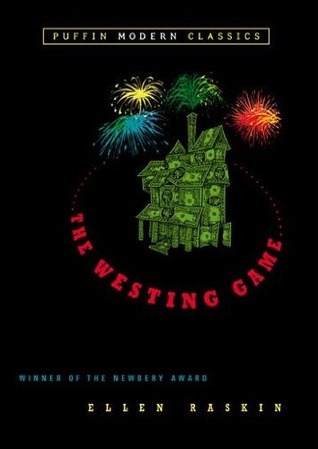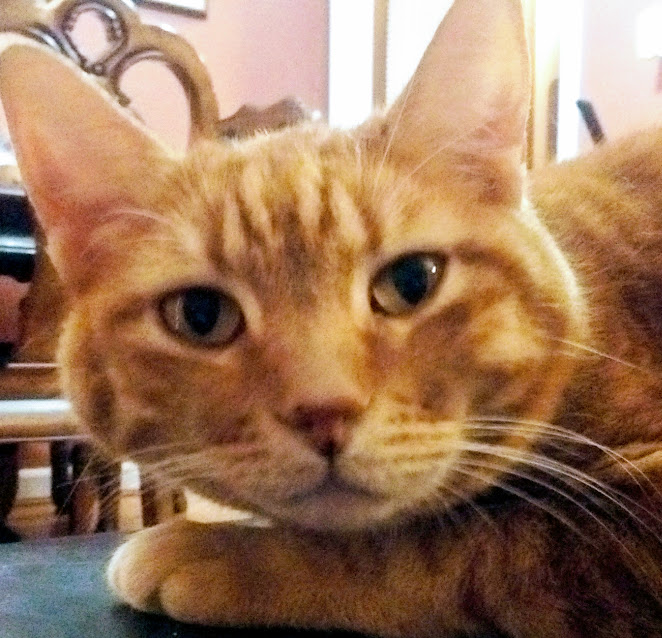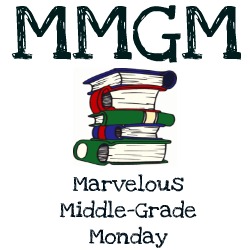Do you all remember my spotlight on The Parker Inheritance, this past spring? Well, it’s thanks to the cross-pollinating efforts of that lovely little book that I was inspired to learn more picked up The Westing Game!

I’m pretty positive that I wouldn’t have picked it up, otherwise. I had the vague notion it was old, and maybe a bit dry. Neither is particularly true, so I’m happy to be able to share this mystery-riddle book with you, in and around my graphic novel spotlights.
What this book is–is unconventional. It’s told from lots of povs and I’d be hard-pressed to say who the main character is. Turtle Wexler? The Judge? Mr. Westing himself? These were a few of my favorite characters, but on the other hand, the reluctantly engaged Angel Wexler’s life is more dramatically impacted and that’s also true of the delivery guy, Amber Otis, and his ‘partner’ Crow. Other characters, like Judge J. J. Ford, don’t see as much upheaval to their lives but make for more interesting characters to think about after the story has wrapped itself up.
So that’s this book’s first oddity–that I truly can’t identify the main character with any certainty. The second unique element is I find myself having similar trouble that I’ve noticed with other people, as I stumble over the question of what the book is about. On the surface it’s simple: an apartment full of what appear to be random strangers find themselves summoned to the reading of a millionaire’s will. He’s named them all his heirs. However, in order to inherit they must solve a riddle and find a murderer amongst themselves–before s/he strikes again.
At this point most people deteriorate into listing who gets paired of with whom and what their clues are, and the book starts to sound like a much more boring version of The Da Vinci code, but that’s all wrong. Yes, the pairs matter and the clues are fascinating, but what really makes this book work are the people. A black female judge (years ago!) who’s grown past her roots but never come to terms with her benefactor, and doesn’t trust his apparent goodwill now. The Wexler family, with their odd dynamics and messy love. Bird-watching, wheelchair-bound Chris Theodorakis and his amazing (seriously, I love this kid!) big brother, Theo. Entertaining Sandy, and hilarious Sydelle and always-running Jimmy Hoo. And the list goes on. The cast of characters might feel a little hard to keep straight early on, but every single one of the 16 heirs emerge as an interesting human being, and protagonist in their own right. It’s really quite astonishing the way they each take shape and play an important part by the end. And by the end it’s clear that this story isn’t just about a mystery and a massive pile of cash, because most of the characters never find out how that ending works out, yet they’ve all been deeply impacted and changed through their experiences playing the Westing Game.
And that’s about all I can say about it without giving something away! Seriously, this book has the most convoluted plot/puzzle pieces of any book I’ve ever read. I figured several things out, but not the very last clue, and I’m not the least embarrassed to admit that. What I can scarce believe is that apparently author Ellen Raskin made it up as she wrote it, with no plotting ahead of time! That’s just…wow. When I worked for Red Adept Publishing as a content/developmental editor I was the go-to editor for all our mysteries, thrillers, etc and of course, I write suspense in my adult books. So I’m pretty comfortable with red herrings, clues, and the kind of sleight-of-hand that’s helpful for an author to use when writing those kind of books. But I never, ever, in my wildest dreams would have thought someone could write a book like The Westing Game without planning it out ahead of time. I’m officially in awe.
But enough from me, let’s see what Apricot-kitty thought of it:

I liked that Turtle. She was smart–like a cat, and she didn’t take abuse from anyone or let them tweak her braid. She was something else!
Turtle was something else, I’ll give her that! However, Apricot-kitty brings up a point I should mention…the behavior of the various characters in the book is far from model. Sandy sneaks drinks from a flask, Turtle kicks shins, and racially insensitive comments (or thoughts) are made about both Judge Ford, who is black, and the Hoos, who are Chinese. Additionally, the general attitude toward Chris, who for most of the book has difficulty speaking and deteriorates into spasms when he’s excited, is rude and often ugly. None of these behaviors are shown in a positive light (well…maybe Turtle kicking people who mess with her braid) and the characters are unlikable when they act in this way, while becoming sympathetic and likable as they move beyond this ignorance, but it should still be noted and readers made aware as they head into the book.
I’m hoping that next time I post I’ll have some tidbits to share from the SCBWI Carolinas conference, which I’ll be attending this week! I’m super excited to go and get charged up to work on my new projects, plus talk books books books with all the lovely people. 😀
What are you reading lately? And what projects are you working on? Tell me in the comments, and be sure to stop by Greg Pattridge’s blog for the full MMGM roundup of interviews, spotlights, reviews and giveaways! Happy reading!

Natalie Aguirre
Suzanne
Greg Pattridge
Suzanne
Alex Baugh
Suzanne
Rosi Hollinbeck
Suzanne
Patricia Tilton
Suzanne
Christi M.
Suzanne
Sue Heavenrich
Stephanie@Fairday's Blog
Suzanne